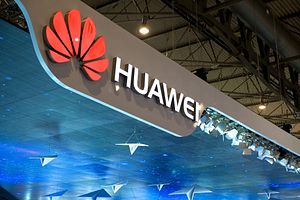Australia is currently in the process of debating whether to allow the Chinese telecommunications company Huawei to participate in the role out of the forthcoming 5G network. While the Australian government will announce its decision soon, this debate has not occurred in isolation. It is occurring within two other major discussions, which are currently shaping this decision.
First, Australia is currently under significant pressure from China for its position on efforts by Beijing to influence the Australian government. A recent article in the People’s Daily called upon the Australian government to “reject political prejudices and paranoia.” This internal Australian debate over Chinese Communist Party (CCP) influence has turned quite public and vitriolic, with the former Australian ambassador to China, Geoff Raby going so far as to call on Australia’s foreign minister, Julie Bishop, to resign.
Driving this internal debate within Australia are the very real efforts by Beijing to assert influence within Australia. This has occurred both through attempts to influence Australia’s political parties and through attempts to surveil and influence student groups and the Chinese diaspora within Australia. This extensive campaign was detailed in a series of explosive articles broken by journalists working for the Australian Broadcasting Corporation (ABC). Combined with international recognition and warnings from Australian intelligence agencies, the issue has reverberated around Australia and cost people their positions. These broad-based efforts have created a large amount of awareness around the issue of China’s non-benign intelligence efforts within Australia.
The second major element to this story is the recent decision by the Australian government to get involved with an underwater telecommunications cable that will link the remote Solomon Islands communities to Honiara. Huawei had been the telecommunications provider signed to build the cable. Australian intelligence agencies had warned the Solomon Islands of the intelligence risks entailed in engaging Huawei. Should the construction gone ahead using Huawei, this would have potentially given the company access to a broadband hub in Sydney. The Australian offer to take the deal on ended up being supported by government funding and has effectively blocked Huawei from deploying the cable in the region.
These two issues place Australia’s political and critical infrastructure debate into sharp focus in a manner that sits entirely at odds with the interests of China. At the very least, its seems likely that the Australian government will decide to block Huawei from the roll out of the 5G network, matching a similar decision to block the company from the deployment of Australia’s National Broadband Network (NBN). Given the large amounts of technology infrastructure being deployed within Australia, it is only natural for companies such as Huawei (likely the largest telecommunications equipment manufacturer in the world) to want to be a part of these engagements.
If the discussion and decision around which manufacturer to use remained entirely separate from politics and questions around Chinese influence, Huawei would likely be strong competitor. However, these discussions are not occurring in isolation, especially given the reality that these engagement relate to Australia’s critical infrastructure.
The reality for Australia is that China’s efforts are not benign and, as pointed out by Elsa Kania, China’s own law has much to say on the subject of Chinese firms being used for intelligence-gathering. Article 7 of China’s 2017 National Intelligence Law declares:
All organizations and citizens shall, in accordance with the law, support, cooperate with, and collaborate in national intelligence work, and guard the secrecy of national intelligence work they are aware of. The state will protect individuals and organizations that support, cooperate with, and collaborate in national intelligence work.
Huawei, being a Chinese company, must comply with Chinese law. Thus, China’s own political realities are likely to have a critical impact on the level of trust other governments place on it. While China might want to leverage its technological capabilities to increase its capacity to engage in influence operations and intelligence gathering, this is likely to have a very real impact on the ability of these companies to engage in large-scale critical infrastructure engagements. By requiring Huawei’s participation in these efforts, China is undercutting the ability of its companies to engage in certain markets.
The reality is that China is specifically asking too much of Australia in these cases. Beijing has the capacity, through its laws, to force Huawei to engage in intelligence activities within Australia. Yet China expects Australia to treat Huawei as a “normal company” when Chinese law explicitly ensures that the legal framework in which it operates rules out truly normal activity. Combined with other ongoing efforts to engage in influence operations within Australia and the region, China has perhaps burned too much capital within Australia to expect their efforts to be successful.
Robert Potter is a Cyber Security Fellow at the Centre for Rule-Making Strategies in Tokyo and the General Manager of WYWM Cyber. Prior to this he was the Head of Cyber Operations at BAE Systems Applied Intelligence and a Manager at Accenture Security. He was also a Visiting Scholar at Columbia University and is PhD Candidate at the University of Queensland

































